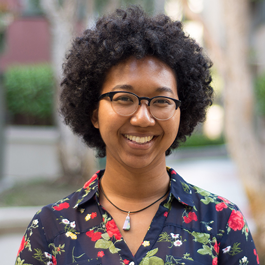
Project Manager
US Army Corps of Engineers
Balancing Sustainability and Development
“We wear so many hats here, you have to know a bit about biology, ecology, water, a little bit about soils, but then also be able to read the law and interpret engineering plans,” says Tiffany Kwakwa, who graduated from Northwestern’s McCormick School of Engineering in 2016 with a BS in Environmental Engineering, a minor in Environmental Policy and Culture, and an MS in Chemical Engineering.
As a project manager for the US Army Corps of Engineers (USACE), Kwakwa is tasked with balancing development projects and the protection of aquatic resources. She works under the Regulatory Division of USACE, which is a permitting body that operates under the Clean Water Act, a federal law that governs water pollution. This branch works as a permitting authority, which allows projects to move forward subject to compliance with the applicable federal regulations, which includes avoidance and minimization of impacts to aquatic resources and potential compensatory mitigation where impacts are unavoidable. Kwakwa explains: “We're not so much like the US Environmental Protection Agency where their mission is more to protect, protect, protect. Ours is sort of this balancing act between the two.”
Kwakwa is currently based in the Fairbanks USACE field office in Alaska. She works directly with applicants on their development projects, which can range from small mom-and-pop shops to large corporations. In her role, she helps applicants alter their project plans to comply with the requirements described in the Clean Water Act, which can require consultation with other federal agencies under the Endangered Species Act, Magnuson-Stevens Fishery Conservation and Management Act, and the National Historic Preservation Act. “It's about getting folks to think about not just the project and the budget, but how can they really minimize their footprint and think about the environment, because sometimes not everyone does so,” Kwakwa notes.
Before moving to Alaska, Kwakwa was based for three and a half years in Los Angeles with USACE. She enjoys working for USACE, she says, because the Regulatory program is never static. Between office work, field work, and the variety of projects, each day is different. Sometimes, even the environments vary. “It's really a different experience, especially coming from Los Angeles to Alaska. Almost everything up in Alaska is a wetland… Versus LA, everything is on the drier side, and so it's a different environment, even if it's the same exact job.”
For Kwakwa, it's all about small successes, like when she is able to get an applicant to avoid or minimize their impact on waters. But, she notes, at the end of the day, people want to build things such as houses or freeways. So, she focuses on her individual conversations with applicants to help them realize their project while minimizing their ecological footprint. Kwakwa enjoys educating the public about environmental stewardship and communicating with people about how to protect their own communities. In fact, Kwakwa looks forward to assisting with disaster relief efforts through USACE. Trained employees can travel around the nation to provide on-the-ground assistance, and in the case of scientists like Kwakwa, they can bring a unique perspective on development and environmental protection that helps teams with debris management, temporary housing, and other mission-critical efforts. She remarks, “If you’re available and willing, usually you can go, and it’s cool to be on the ground and helping out.”
She recalls how her environmental law classes at Northwestern prepared her for interpreting law at USACE, especially as political landscapes and priorities shift over time. She notes that working in sustainability requires expertise in a range of disciplines, so she encourages current Northwestern students to take as many classes as possible in varying fields to be prepared for any circumstance.